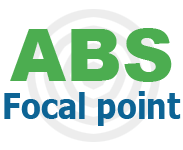
What are the rules for access to genetic resources in the Netherlands?
What are the rules for access to genetic resources in the Netherlands?
In its policy document Sources of Our Existence – conservation and sustainable use of genetic diversity (2002), the Dutch government has stated that it is unnecessary to exercise its sovereignty regarding access to genetic resources occurring in the Netherlands in national legislation. The legislation for implementation of the Nagoya Protocol in the Netherlands, the Nagoya Protocol (Implementation) Act, does not regulate access to genetic resources. This means that you do not need prior informed consent (PIC) to access genetic resources in the Netherlands. There is also no obligation to submit due diligence declarations for genetic resources accessed in the Netherlands.
It may be, however, that access to certain in situ genetic resources is controlled by other regulations, for example on biodiversity conservation and nature reserves and by phytosanitary and veterinary measures. Environmental impact rules may also apply. Genetic resources on farms or in gardens are held privately and hence the transfer of these genetic resources in any form requires the consent of their owner. Collection holders may set conditions (e.g. in the form of a Material Transfer Agreement, MTA), which are often dependent on the conditions under which the collections themselves acquired the materials.
How is compliance monitored and enforced in the Netherlands?
Rules on Access and Benefit-Sharing apply to all users of genetic resources in the Netherlands. These rules stem from the CBD, the Nagoya Protocol, the ITPGRFA and the PIP Framework. The Nagoya Protocol is implemented through EU Regulation 511/2014 and through national legislation of the EU Member States. In the Netherlands, the Nagoya Protocol is implemented by the Nagoya Protocol (Implementation) Act.
The Netherlands Food and Consumer Product Safety Authority (NVWA) is charged with monitoring user compliance with the EU Regulation 511/2014 in the Netherlands. Further information on compliance and inspections can be found on the NVWA’s website (in Dutch).
